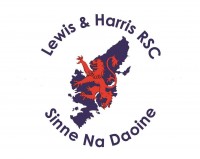 Don’t take a chance, take the test!
Don’t take a chance, take the test!
NHS Western Isles is strongly encouraging everyone between the ages of 50 and 74 to participate in bowel screening, when they receive the bowel screening kit in the post. Those aged over 74 can also request a kit every two years.
The local health board is reiterating the vitally important message that nine out of 10 people will survive bowel cancer if it is detected early. Bowelscreening saves lives by detecting problems early and spotting symptoms that people may not know they have.
Latest figures in the Western Isles showed that 62.5 per cent of women and 53.3 per cent of men who received bowel screening kits completed the test. It is vitally important that both men and women complete the test. The low male uptake rate is particularly important to address, given that men are more likely than women to have a positive screening test and more cancers are detected in men than women.
Local man, Rob Daly from the Isle of Barra, has provided immeasurable support to the Western Isles Detect Cancer Early campaign, by sharing his story of how bowel screening saved his life.
Two years ago, having just turned 61, Rob Daly had no reservations about taking the bowel screening test when it arrived through his letterbox.
Rob followed a healthy diet and took daily exercise. There was no history of bowel cancer in his family. He also considered he had good genes and no generic risk factors, with his mum and nan having lived into their 80s and his dad still strong and healthy in his 90s.
Fast forward two years and Rob, a retired schoolteacher, became one of Scotland’s bowel cancer survivors. Rob’s cancer was detected early, because he took the bowel screening test, and he is now urging others to take the test so that, if there is a problem, they too will have the best possible chance of beating the disease.
“I thought the first time I did the test that it would be silly not to – but I never thought for a minute that I might test positive,” he admits. “I had no reservations about doing the test.”
Within a month after completing the test in early June 2012, Rob received a follow-up letter and kit in the post, explaining the need for a re-test.
Rob explains: “I still never thought for a minute that the reason for the positive test was anything other than some of the possibilities suggested. Within a few weeks I had a colonoscopy and came away from that thinking everything was fine, because nobody at the hospital suggested than anything was untoward. I was aware that a polyp had been removed (I watched them do it) and that it would be sent away for testing, but I left the hospital thinking I was in the clear because no one had suggested anything otherwise.”
Cancer Diagnosis
‘Total shock’ was how Rob described his reaction when, two weeks later, he received a phone call to say that the test on the polyp had revealed that it was cancerous.
He recalls: “I had to fly to Inverness on the Monday – the phone call came on a Friday afternoon, they wanted me to go the next day! At RaigmoreHospital, on September 10 2012, I had a CT scan and was told what would happen next. At first it was thought I would need five weeks of radiotherapy, then surgery, but the CT scan revealed that this wasn’t needed. How did I react? I was in a complete daze, almost unbelieving.”
Rob also pointed out that he had absolutely ‘no signs or symptoms whatsoever’.
“That’s why it was such a shock,” he adds. “No family history; very healthy diet; jogging, by this time, four or five miles, six days a week. I was probably then, fitter than I had ever been in my adult life.”
Around a month after attending Raigmore, Rob attended hospital in Glasgow, and was told he would need an ileostomy, which was scheduled for November 2012. (An ileostomy is a surgical opening constructed by bringing the end or loop of small intestine – the ileum – out onto the surface of the skin. Intestinal waste passes out of the ileostomy and is collected in an external pouching system which is adhered to the skin.)
Rob explains: “Before the surgery, I really pushed myself with exercise because I wanted to get as fit as I possibly could. The surgery had been explained to me and so I knew what was going to happen. I had no adverse reactions to the surgery – I was ‘under’ from 9am until 6pm, but by 7pm, I was having a sandwich, feeling great and mightily relieved! I guess the patient administered pain killer helped!”
He adds: “All went very well; I was up and about the next day and home within another three days. I understood at the time that I might have the pouch for three to six months and I just assumed that it would be six. I quickly got the hang of managing the pouch and changing it.”
Rob started chemotherapy in January 2013 and he had six sessions, with the final one in May 2013.
He explains: “The news about the chemo was a complete shock. The consultant in Glasgow rang me about three weeks after the surgery and I had no idea that might happen. Nobody had mentioned chemo before that point. I also hadn’t been aware of the fact that, during the surgery, 13 lymph nodes had been removed, two of which ‘exhibited some cancerous cells’.
“Going to Glasgow every three weeks or so was a drag because it meant two nights and three whole days away. Fortunately Margaret [Rob’s wife] was able to come with me. I was back jogging a few weeks after the surgery and I kept it up all the way through until just after the last treatment, when I was just too tired, but I kept walking. Within another month I was back at it again.”
By October 31, 2013, when he saw the consultant in Glasgow for a follow-up appointment, Rob had further built up his physical fitness, and was jogging six miles, once a week; doing a fast three-miles, two days a week; and doing his usual four-mile jog the other four days! He then unfortunately suffered a calf injury.
Rob had his reversal surgery in January this year, so, in total, he had the ileostomy for around 14 months.
“By the time of the reversal ‘op’ I was back doing three miles a day, I even did five miles the day I flew out!” Rob recalls. “Through all this time, I ate normally, had a good appetite and felt absolutely fine. The only negative was that, for a few days after the chemo, I would feel a bit off colour, but I could still manage a bacon roll and a four mile run!”
‘Looking forward to having a long and active life’
Today, Rob (who turned 63 in June) now considers that he was lucky to have been fit and healthy when he was diagnosed, and extremely lucky that the cancer was picked up at an early stage (when it could still be effectively treated) through the bowel screening test.
“I just thought it would be silly not to take the test…even though I never thought that I might fail it. Having said that, I guess part of me must have thought, why risk it? I would urge everybody to take the test. I’m now looking forward to having a long and active life. Right now, I’m just getting back to the fitness level I was at last October. The internal plumbing needs to settle down a bit, but it isn’t going to stop me doing anything.”
// <![CDATA[ google_ad_client = "pub-8789619055654824"; /* 300x250, created 11/13/09 */ google_ad_slot = "3809754592"; google_ad_width = 300; google_ad_height = 250; // ]]><script type="text/javascript" src="http://pagead2.googlesyndication.com/pagead/show_ads.js">// <![CDATA[ // ]]></script>
Hebrides Today brings you the latest news from the Western Isles




Leave a Reply